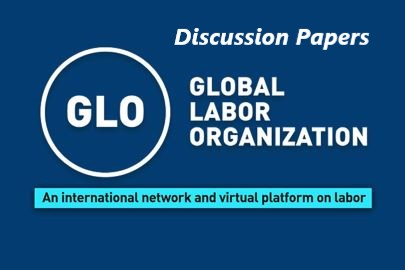A new GLO Discussion Paper identifies research community structures and leaderships.
GLO Discussion Paper No. 1051, 2022
Networks in Population Economics: production and collaborations – Download PDF
by Molina, José Alberto & Iñíguez, David & Ruiz, Gonzalo & Tarancón, Alfonso
GLO Fellow José Alberto Molina

Author Abstract: Population Economics (PopEc) covers a number of topics in Economics, as well as in Demography, Labor Studies, Sociology, etc. For example, the economic determinants of population change and demographic behavior covers topics such as household formation, marriage and divorce, fertility, gender, child bearing, schooling, access to labor markets, migration, well-being, and ageing and mortality, among others. In this paper, we analyze the production and networks of a total of 6,472 authors who have published 5,070 papers in Population Journals (indexed in SSCI of WOS) between January 1969 and January 2021 (Journal of Population Economics, Journal of Human Resources, Feminist Economics, the Review of Economics of the Household, the Journal of Demographic Economics, Demography, Population and Development Review, and the European Journal of Population). Using the Impact Factor (IF) of these journals corresponding to the year of publication, our results first identify the academic leaders among those authors, as well as other results in terms of communities. Results reveal that the largest community is led by the sociologist Trude Lappegard, with the community led by the economist Hans-Peter Kohler as a close second. The latter community includes the most prolific author, the economist Samuel H. Preston. Additionally, we note that collaborations among these authors are very rare, with only their neighborhoods collaborating.

GLO Discussion Papers are research and policy papers of the GLO Network which are widely circulated to encourage discussion. Provided in cooperation with EconStor, a service of the ZBW – Leibniz Information Centre for Economics, GLO Discussion Papers are among others listed in RePEc (see IDEAS, EconPapers). Complete list of all GLO DPs – downloadable for free.
The Global Labor Organization (GLO) is an independent, non-partisan and non-governmental organization that functions as an international network and virtual platform to stimulate global research, debate and collaboration.
Ends;

